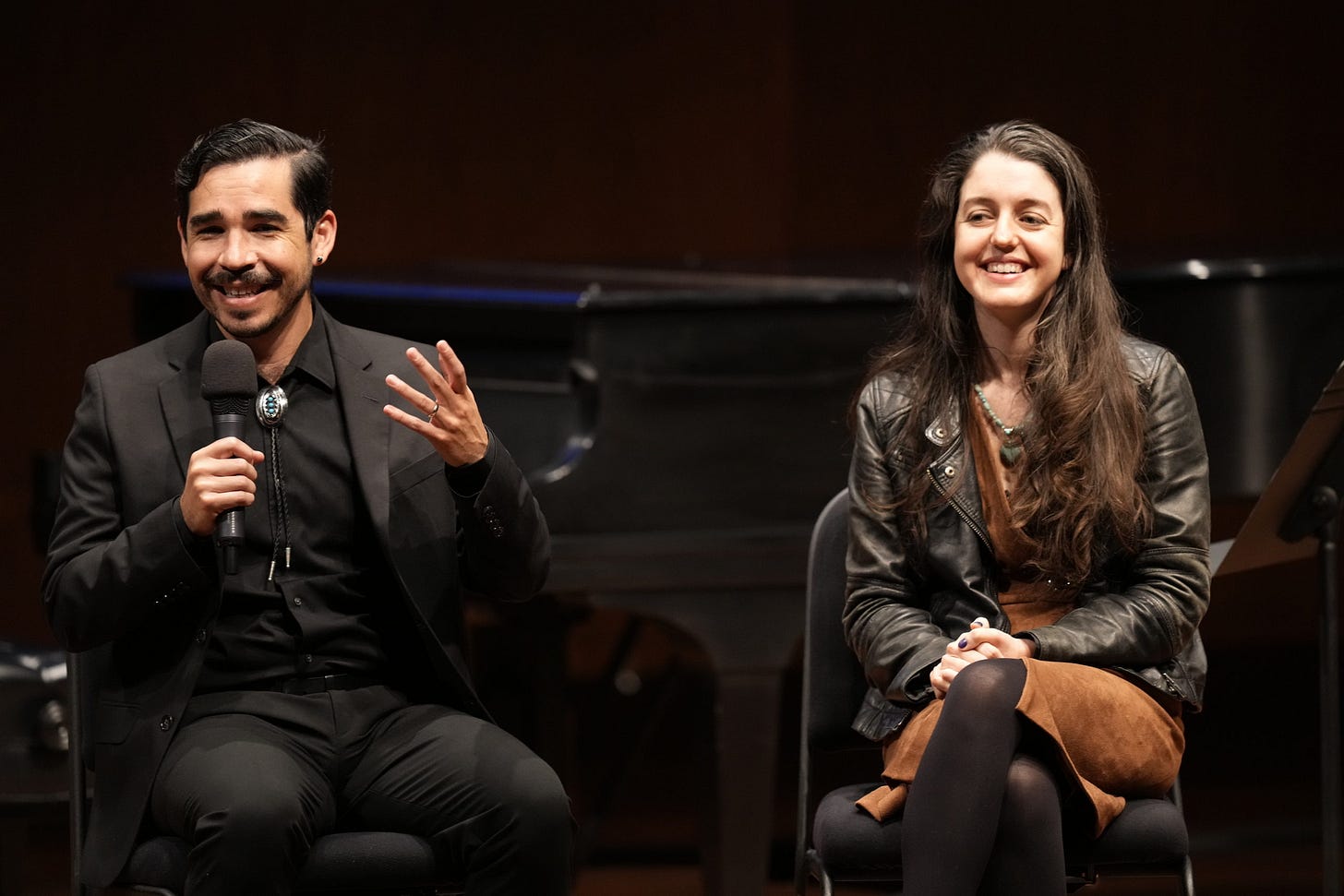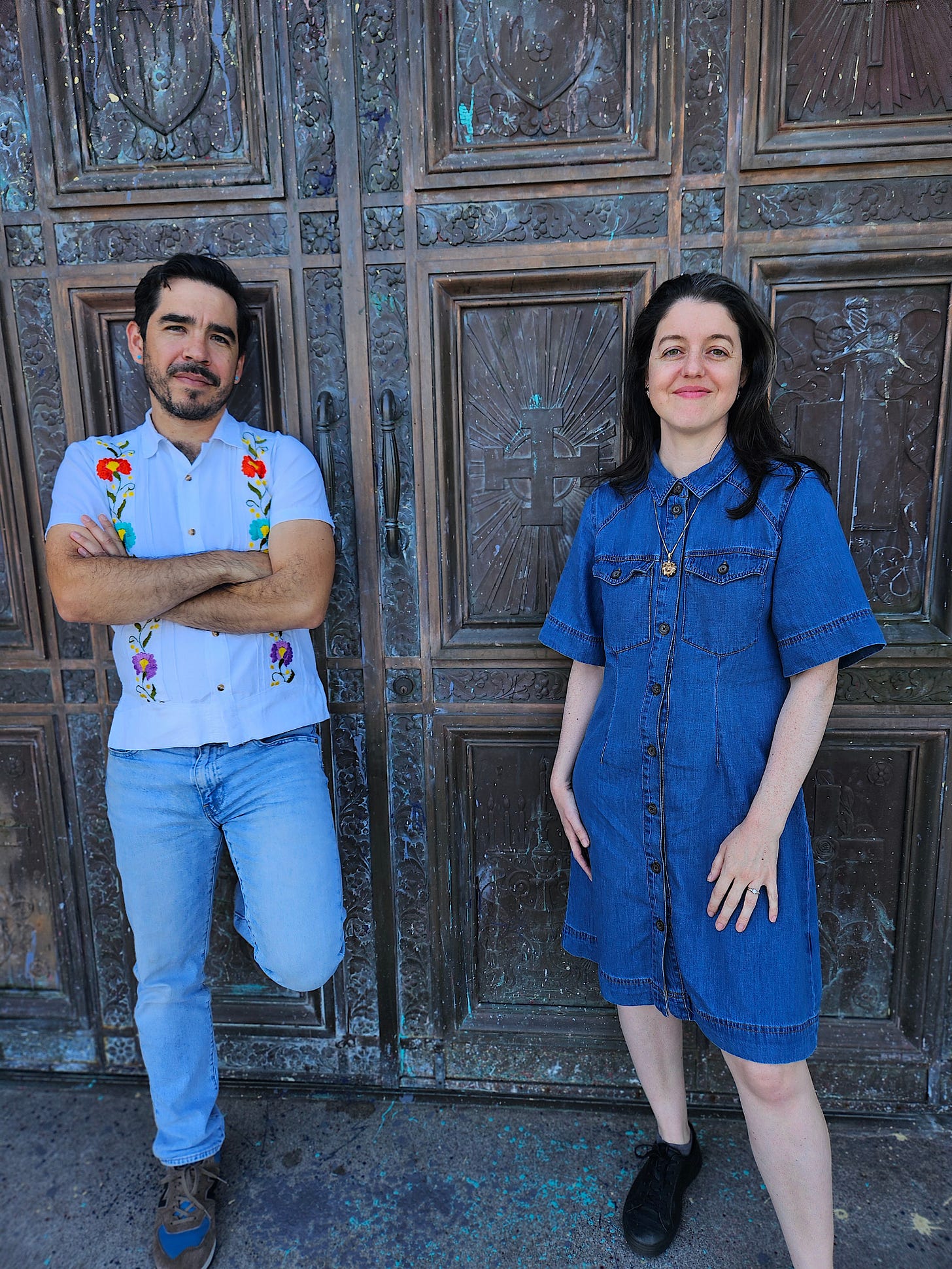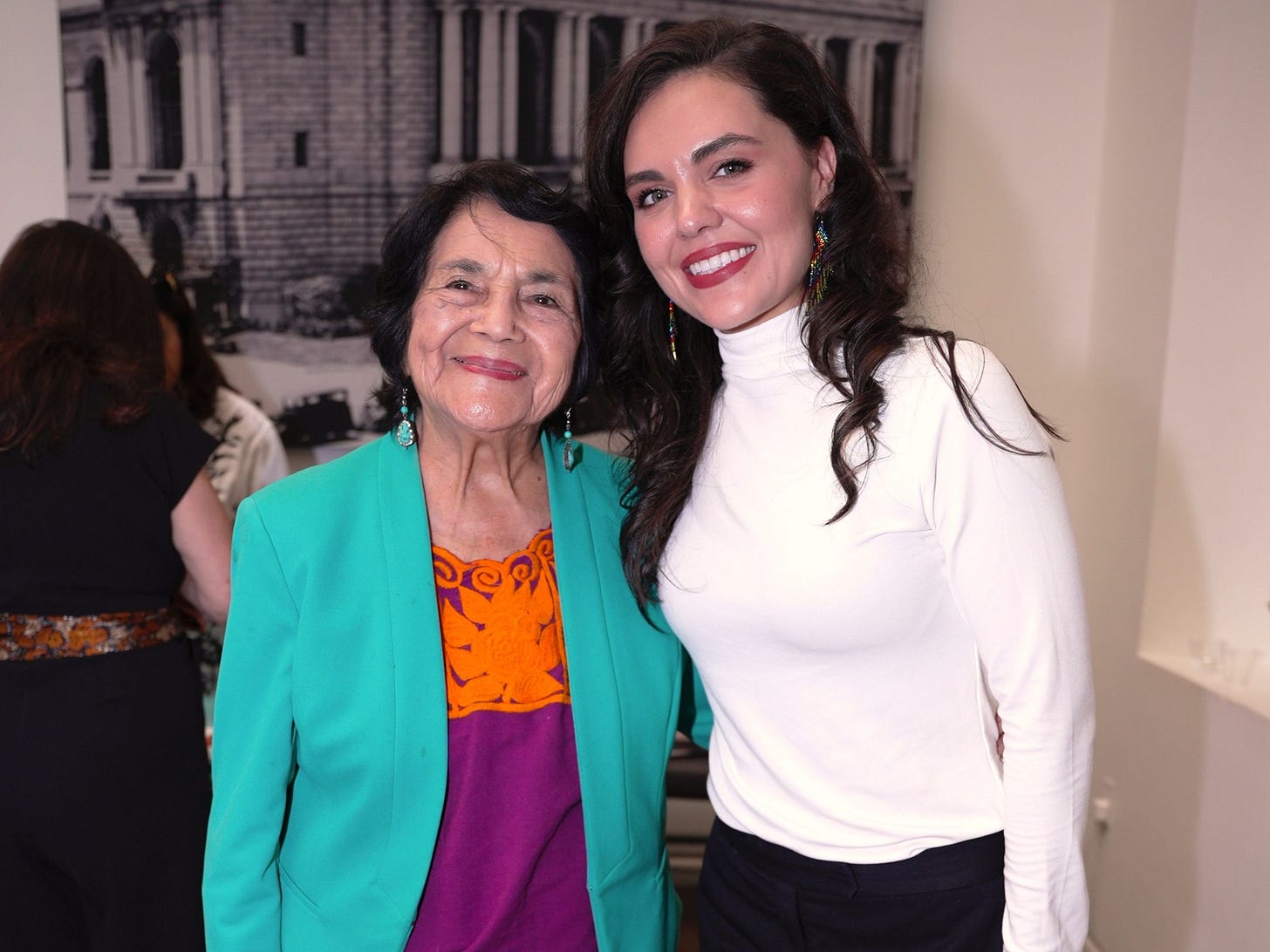Dolores’ mission
An operatic world premiere scheduled for next month throws a spotlight on labor leader Dolores Huerta
At a time when the political situation in the United States can seem intractably hopeless, perhaps we could all use a bit of uplift. Or at any rate, we could use a reminder that although things have looked bleak before, some visionaries seized the moment to forge a popular resistance even in the face of daunting obstacles. And that at least one of those people still walks among us!
Dolores, a new opera by composer Nicolás Lell Benavides and librettist Marella Martin Koch that’s scheduled for its world premiere next month with West Edge Opera, promises something along these lines. It’s a musical and theatrical portrait of Dolores Huerta, the legendary labor leader and civil rights activist who co-founded the National Farm Workers Association, helped spearhead the Central Valley strikes of the 1960s and ’70s, and coined (or at least popularized) the slogan “¡Sí, se puede!”
Huerta’s career has been long and varied — at 95, she remains a seemingly unstoppable force for political change — but the opera focuses exclusively on a brief but critical period: the months during the spring and summer of 1968 when the labor leaders, having led an increasingly difficult strike for three years, threw their support behind the presidential campaign of Robert F. Kennedy only to see his assassination turn their hopes to ash. Huerta stood alongside Kennedy on the stage of the Ambassador Hotel in Los Angeles as he celebrated his victory in the California primary — a scene that forms the dramatic fulcrum of the opera.
“We never wanted to focus on her entire life,” Benavides told me. “The piece isn’t meant as a history lesson. It’s about, What do you do? How do you pick up the pieces when you've worked so hard and your dreams seem dashed? And the answer is, You keep going.
“Dolores’ career wouldn’t have lasted another half century if she hadn’t had that kind of determination. And I think we could use that in this country today.”
Benavides knows about Huerta’s personal power at first hand, because she’s his cousin. Dolores was a forceful presence for years at family gatherings, he said, before it even dawned on him that she had a profile outside the family circle. The idea of turning her story — along with those of her fellow organizers Cesar Chavez and Larry Itliong — into operatic form had been germinating for years until Aperture, the crowd-sourced commissioning project launched by West Edge Opera during the Covid pandemic shutdown, helped make the plan a reality. He brought the project to Martin Koch, with whom he had collaborated before on smaller projects.
“I was very grateful that Nicolas already had the specific episodes from her life in mind,” said Martin Koch. “Because it comes with stakes; it comes with drama and tragedy. In 1968 there was a lot going very wrong, not unlike the moment we find ourselves in now.”
I obviously can’t vouch for the completed work, which is scheduled for subsequent productions by co-commissioning companies that include Opera San Diego and Opera Southwest in Albuquerque. But two years ago I heard a public workshop of what was then a work-in-progress, and it was obvious that the creators had their fingers on something vital and exciting. Mezzo-soprano Kelly Guerra, who sings the title role, boasts a combination of tenderness and steely strength. The score itself was evocative but clear-spoken, dexterously capturing moments of both poignancy and dark humor. And in Martin Koch’s libretto, the cartoon malevolence of Richard Nixon and the richly shaded characters of all three union organizers sprang vividly to life.
Conductor Mary Chun, who has been involved with the opera since its earliest stages, says that the finished score has made good on that promise. “What I love about Nicolás’ writing is that he has a very specific rhythmic style, and rhythm is my jam,” she told me. “He’s got all these mixed meters, with very deceptive downbeats so that, for instance, the orchestra will be playing in 4/4 but the singers are singing in 3/4.”
To hear Benavides tell it, the score for Dolores is a conflation of every musical resource he’s ever studied or heard. There’s minimalism and Mexican-American folk music, jazz and serialism and waltzes. There’s even a stretch of Gregorian chant that returns repeatedly as one of several leitmotifs running through the score.
But that’s not the important point, he says. “I don't care if nobody notices. In fact, I hope nobody does. I think it’s terrible if anybody thinks about craftmanship while the piece is happening. I hope people just get lost in it.
“And at the end, we try to make it clear that the fight isn’t over. We leave the audience wondering what will happen — because of course what happens is that the show is over, and you have to go back to the real world and figure out what's going to happen in your own life. And that question has to be answered by you.”
Dolores: West Edge Opera, Aug. 2-16. Oakland Scottish Rite Center. www.westedgeopera.org.
Cryptic clue of the week
From Out of Left Field #275 by Henri Picciotto and me, sent to subscribers last Thursday:
Feed prepared in hours (7)
Last week’s clue:
Break down and get rid of islands? (5)
Solution: DECAY
Break down: definition
get rid of islands?: second, punny definition
Coming up
• Valley of the Moon Music Festival: The chamber festival founded and led by cellist Tanya Tomkins and fortepianist Eric Zivian begins its 11th season with a pair of programs exploring the music of the Romantics. The opening concert is devoted to the Mendelssohn siblings, Felix and Fanny, with some Bach thrown in for good measure; the second program rejoices in the title “Wagner and the French: A Love-Hate Relationship.” July 12 and 13, Hanna Center, Sonoma. www.valleyofthemoonmusicfestival.org.






